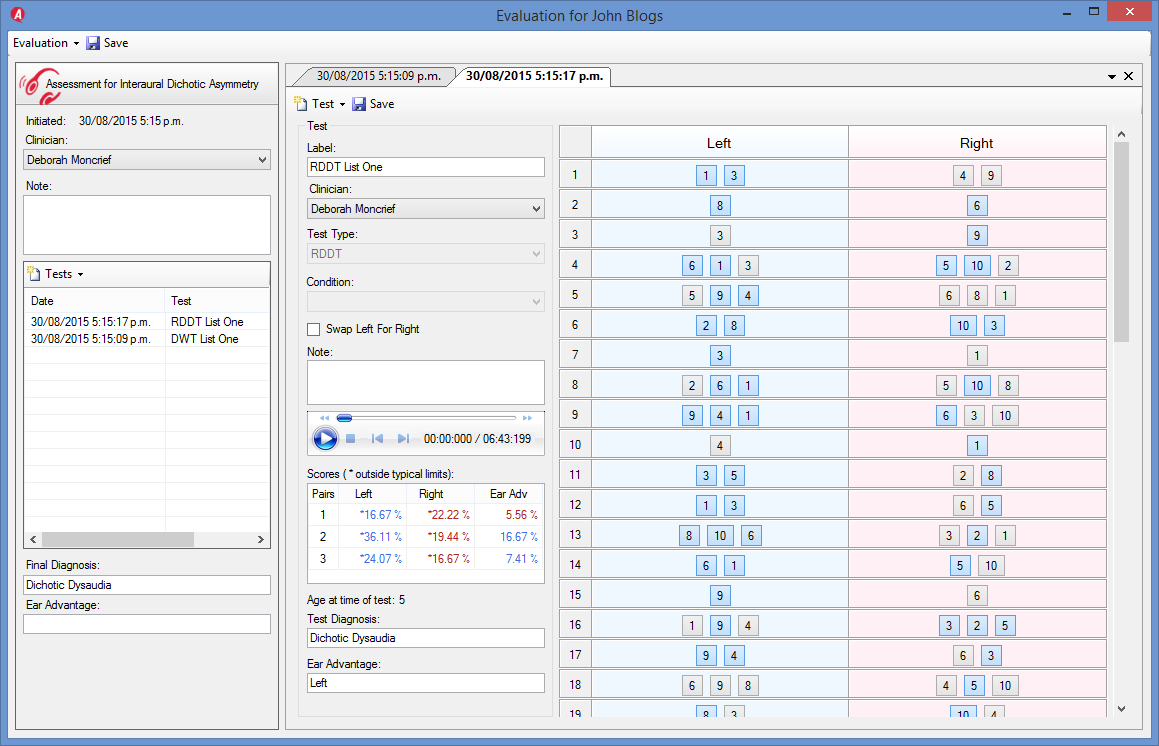
What is Amblyaudia?
Amblyaudia is a type of auditory processing deficit. It is due to a weakness in binaural integration. Binaural integration occurs when all information arriving at both ears is adequately coded by the central auditory system, whether the information is the same or different between the ears. When all features arriving at the two ears are preserved, integrated and coded by the auditory system, the listener will correctly perceive what has been heard. When features are not preserved, as in individuals with the binaural integration deficit of amblyaudia, the listener struggles to perceive the sounds that have been taken in. A binaural integration deficit is likely to be greatest when listening to unfamiliar material or during challenging listening situations as when background noise is present.
How is Amblyaudia Assessed?
Binaural integration is assessed through dichotic listening tests. During dichotic listening, two different words are simultaneously presented to the two ears and the listener is asked to repeat both words. Weaknesses in binaural integration are shown by poor performance in both ears or by a large difference in performance between the two ears. A large difference in performance between the two ears is typically the result of weak performance in the listener's non-dominant ear which in most (but not all) listeners is the left ear.


How Can Amblyaudia Be Treated
Auditory Rehabilitation for Interaural Asymmetry (ARIA) is a training program developed to treat amblyaudia. The approach is similar to training methods used for amblyopia in the visual system and motor deficits through constraint-induced therapies. It involves repetitive auditory training with dichotic material during which systematic adjustments are made to the relative intensity of material presented to the two ears. The goal of ARIA is to achieve more symmetrical performance in both ears during dichotic listening, a sign of normal binaural integration of auditory information.

